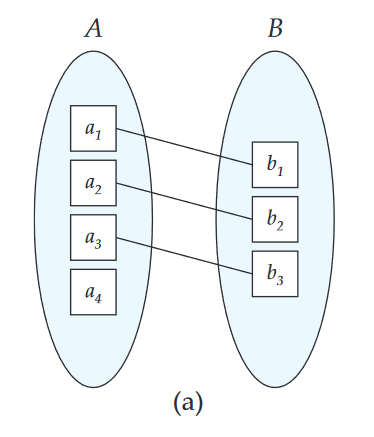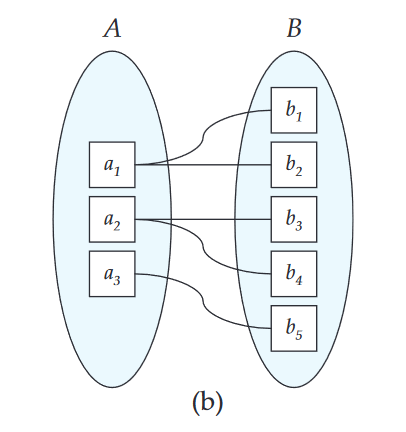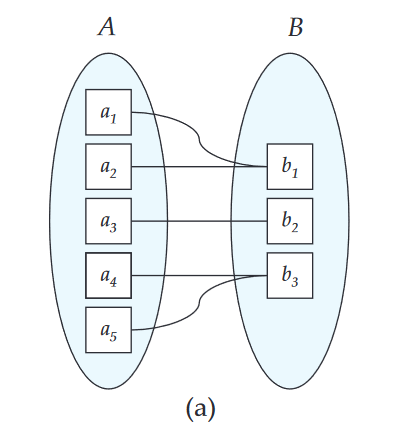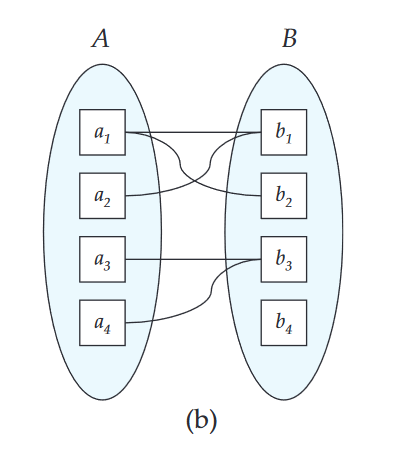An E-R enterprise schema may define certain constraints to which the contents of a database must conform.
Mapping cardinality
Mapping cardinality expresses the number of entities to which another entity can be associated via a relationship set. It is most useful in describing binary relationship sets.
For a binary relationship set between entity sets and , the mapping cardinality must be one of the following:
- One-to-one
- One-to-many
- Many-to-one
- Many-to-many
One-to-one
An entity in is associated with at most one entity in , and vice versa.

One-to-many
An entity in is associated with any number (zero or more) of entities in . An entity in can be associated with at most one entity in .

Many-to-one
An entity in can be associated with at most one entity in . An entity in is associated with any number (zero or more) of entities in .

Many-to-many
An entity in is associated with any number (zero or more) of entities in , and vice versa.

Participation constraints
Let be an entity set and be a relationship set.
-
Total participation
The participation of in is said to be total if every entity in participates in at least one relationship of . -
Partial participation
The participation of in is said to be partial if only some entities in participate in relationships in .